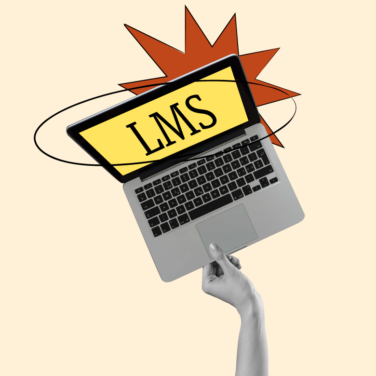Best Practices For Managing And Reducing Utility Expenses In Business

Are you seeking methods to reduce the utility costs of your business? This article will examine the most effective strategies for controlling and decreasing utility costs for an organization.
By assessing your current utility usage, implementing energy-saving measures, conducting regular audits, negotiating better rates with suppliers, utilizing smart technology, educating and engaging employees, and analyzing utility data, you can create a sustainable and cost-effective approach to managing your business’s utility expenses.
Assessing Your Current Utility Usage
You should start by assessing your current utility usage to identify areas where you can reduce expenses. Commence the process by compiling and scrutinizing your utility invoices to discern your energy consumption patterns. Identify any instances of increased usage or potential areas of energy wastage.
To obtain a comprehensive comprehension of your energy consumption and to identify potential areas for improvement, you should contemplate undertaking an energy audit. Additionally, track your daily energy usage and identify any inefficiencies or unnecessary consumption. Once you have a clear picture of your current usage, you can then move on to implementing energy-saving measures.
Conducting Regular Utility Audits
Implementing regular utility audits helps identify areas where energy usage can be optimized and costs can be reduced. By regularly performing these audits, you can acquire significant knowledge regarding the energy consumption patterns of your organisation and detect any inefficiencies or wastage.
A utility audit involves thoroughly examining your utility bills, analyzing usage data, and identifying opportunities for improvement. Potential energy-saving opportunities can be identified, including the need to modify temperature settings or upgrade equipment with greater efficiency.
Additionally, you can also consider employing an expense management tool like Payhawk to easily keep account of all bills including the utility, making audits easier.
By regularly conducting utility audits, you can take proactive steps towards reducing your utility expenses and making your business more energy-efficient. As you evaluate your energy usage, you can also explore opportunities for negotiating better rates with suppliers, further optimizing your utility expenses.
Negotiating Better Rates with Suppliers
Negotiating with suppliers can lead to better rates for your company’s utilities. Ask for a lower price or investigate alternative options without fear. Conduct preliminary research on various suppliers and their prices to establish a solid negotiating position.
After collecting the requisite data, communicate with your existing provider and convey your desire to negotiate a more favorable rate. Emphasize the advantages of establishing a long-term partnership and underscore your dedication to cost reduction.
In addition to securing a reduced price, negotiation may also result in acquiring supplementary services or benefits. Through effective rate negotiations with suppliers, one can substantially decrease utility expenditures and enhance overall financial performance.
Educating and Engaging Employees
Employee engagement via education is crucial for lowering utility costs. By imparting knowledge and strategies regarding the significance of energy conservation to your workforce, you can enable them to take an active role in mitigating utility costs.
Commence by organizing educational sessions or seminars to foster consciousness regarding energy-conserving methodologies. These may include implementing slumber mode on computers, turning off lights when not in use, and, whenever feasible, utilizing natural lighting. Promote employee engagement in energy-saving initiatives by establishing amicable competitions or recognition systems.
Additionally, provide regular updates on the progress and impact of these efforts. By engaging and educating your employees, you can foster an energy-conscious culture and ensure that everyone is working towards the common goal of reducing utility expenses.
Monitoring and Analyzing Utility Data
To effectively manage your energy consumption and identify areas for improvement, you should regularly monitor and analyze utility data. By monitoring the consumption and expenses of utilities, one can acquire significant knowledge regarding the energy trends of their organization and detect any irregularities or inefficiencies.
This data can help you pinpoint areas where energy is wasted, or equipment may need maintenance or upgrades. Additionally, analyzing utility data can help you set realistic energy reduction goals and track your progress.
By understanding your energy consumption patterns and making data-driven decisions, you can implement targeted strategies to reduce utility expenses and improve overall energy efficiency in your business. This will not only save you money but also contribute to a more sustainable culture in the workplace, promoting environmental responsibility and fostering a positive company image.
Creating a Sustainable Culture in the Workplace
Creating a sustainable culture in the workplace involves fostering an environmentally responsible mindset and promoting a positive company image.
To achieve this, encourage employees to adopt eco-friendly practices such as reducing energy usage, recycling, and conserving water. A comprehensive recycling program that includes receptacles that are plainly labeled can assist in increasing participation. Furthermore, promote staff awareness regarding the significance of powering off electronic devices and lighting when not in use and provide incentives for energy-conserving actions.
Creating a green team or committee can further engage employees in sustainability efforts by organizing awareness campaigns, workshops, and competitions. Furthermore, consider investing in energy-efficient appliances and systems to reduce utility expenses in the long run.
Conclusion
So there you have it; by following these best practices for managing and reducing utility expenses in your business, you can make a significant impact on your bottom line. Assess your current usage, implement energy-saving measures, conduct regular audits, negotiate better rates, utilize smart technology, educate and engage your employees, and monitor and analyze utility data.




